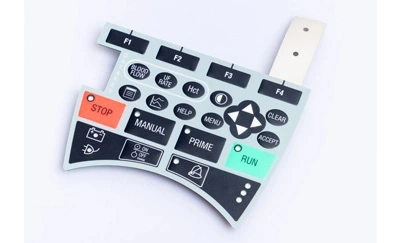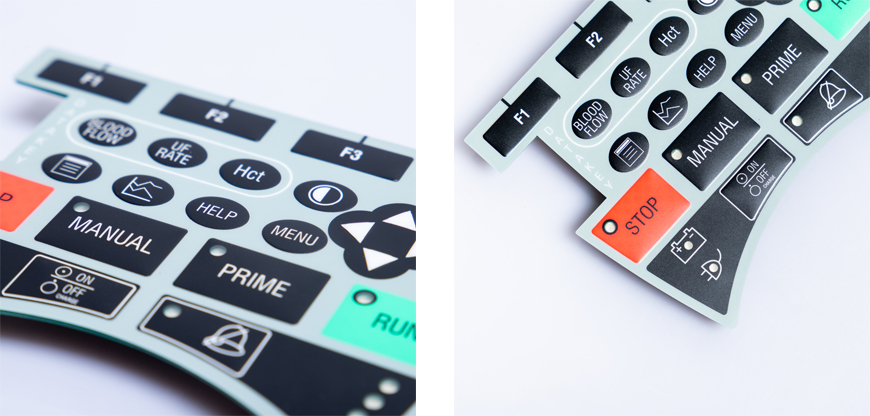
In the realm of user interface technology, embedded membrane switches have emerged as a groundbreaking innovation, transforming the way we interact with various electronic devices. These switches have found applications in industries ranging from consumer electronics to medical devices, offering a unique combination of durability, versatility, and sleek design. In this article, we will delve into the fascinating world of embedded membrane switches, exploring their functionality, advantages, applications, and the future of this technology.

To grasp the significance of embedded membrane switches, it's essential to comprehend what membrane switches are. Membrane switches are user interfaces that consist of thin, flexible layers of material, typically made from polyester or polycarbonate. These layers are printed with conductive traces, symbols, and icons, enabling users to interact with electronic devices by pressing on specific areas.
Embedded membrane switches take the concept of traditional membrane switches to the next level by integrating them directly into a device's surface, such as a control panel or keypad. This integration results in a seamless and visually appealing user interface, eliminating the need for bulky buttons or external components.
Embedded membrane switches offer a multitude of advantages that make them an attractive choice for product designers and manufacturers:
1. Durability
One of the standout features of embedded membrane switches is their durability. The materials used in their construction are resistant to moisture, chemicals, and physical damage, ensuring long-lasting performance even in harsh environments.
2. Versatility
These switches are highly versatile and customizable. Manufacturers can design them to meet specific requirements, incorporating various features like backlighting, tactile feedback, and even embedded touchscreens.
3. Sleek Design
The seamless integration of embedded membrane switches enhances the overall aesthetics of electronic devices. They provide a modern and streamlined appearance, contributing to a more appealing product design.
Embedded membrane switches have found their way into an array of applications across different industries:
1. Consumer Electronics
In the world of smartphones, tablets, and smart appliances, embedded membrane switches are used for touchscreen control panels, ensuring a sleek and responsive user experience.
2. Medical Devices
Medical equipment relies on embedded membrane switches for their ease of cleaning, resistance to contamination, and the ability to provide critical inputs for healthcare professionals.
3. Industrial Control Systems
In industrial settings, these switches are utilized in control panels for machinery and automation systems, offering reliable and intuitive operation.
As technology continues to advance, embedded membrane switches are poised for further innovation. Expect to see:
1. Enhanced Sensory Feedback
Future switches may incorporate advanced haptic feedback technology, providing users with a more tactile and immersive experience.
2. Integration with IoT
Embedded membrane switches will likely play a pivotal role in the Internet of Things (IoT), acting as the interface for an interconnected world of devices.
Embedded membrane switches represent a remarkable leap in user interface technology, combining durability, versatility, and elegant design. From consumer electronics to critical medical devices, these switches are enhancing the way we interact with the digital world. As technology evolves, embedded membrane switches are set to become even more integral to our daily lives, offering a glimpse into a future of seamless connectivity and user-friendly interfaces.
Are embedded membrane switches the same as traditional buttons?
No, embedded membrane switches are different from traditional buttons as they are integrated directly into the device's surface, providing a sleek and modern interface.
What industries benefit the most from embedded membrane switches?
Industries such as consumer electronics, medical devices, and industrial automation greatly benefit from the use of embedded membrane switches due to their durability and versatility.
Can embedded membrane switches be customized for specific applications?
Yes, these switches are highly customizable, allowing manufacturers to tailor them to the unique requirements of their products.
Do embedded membrane switches require special maintenance?
They are designed to be low-maintenance, with resistance to moisture and contaminants. However, regular cleaning is recommended for optimal performance.